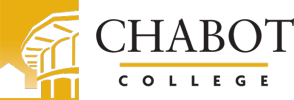
Early Childhood Development (Teacher)
This program map from the 2024-2025 catalog year represents one possible pathway to complete this program. Your pathway may vary depending on your transfer plans and also previous college credit, including AP Test scores, concurrent enrollment courses and high school articulated courses.
I'm ready to get started. What do I do next?
- Review this program map to get an overview of the required courses
- Meet with a counselor to develop your customized student education plan www.chabotcollege.edu/counseling
- Use DegreeWorks, an online student education planning tool, to track your progress toward graduation www.chabotcollege.edu / admissions / degreeworks
This certificate prepares future early childhood professionals to work with diverse children in early childhood settings. The program includes academic instruction and field experience. Students learn early childhood curriculum, pedagogy and integrate developmentally appropriate practices to curriculum design for teaching young children. Additionally, students learn how to build culturally responsive partnerships with children, families and communities.
The Early Childhood Development Basic Teacher Certificate of Achievement fulfills the early childhood education units required for the California Child Development Teacher Permit (general education units also required.)
What can I do with this major?
Those who hold the Child Development Teacher Permit are authorized to provide service in the care, development and instruction of children in a child care and development program, and supervise an Associate Teacher, Assistant and an aide. Many early childhood development units are transferable to four-year institutions for elective credit, but a counselor should be consulted for specific transfer information.
Learning and Career Pathway
- Social Sciences, Humanities & Education
Icon Key
Semester 1
ECD
56
Child Growth and Development
ECD
62
Child, Family and Community
List A Course #1 (select 3 units)
Semester 2
ECD
63
Early Childhood Curriculum
List A Course #2
Semester 3
ECD
90
Practicum: Supervised Experience
List A Course #3
List A
Select 8-10 units from List A below